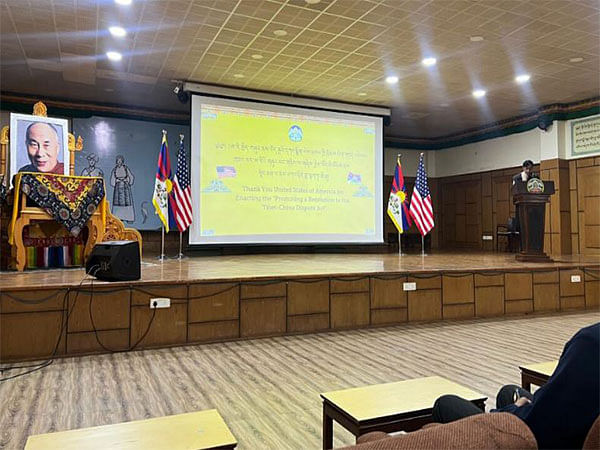Mandi (Himachal Pradesh) [India], July 22 (ANI): The Tibetan communities of Pandoh Tashiling, Mandi Town, and Rewalsar (Tso Pema) came together to express their heartfelt gratitude to the US Government for passing the Resolve Tibet Act into law, Central Tibetan Administration of the Tibetan government in exile, based in Dharmshala revealed.
According to CTA, this significant event was attended by esteemed guests including the Tibetan Settlement Officer and the President of the Local Tibetan Assembly.
They extended their sincere appreciation to the US Government, bipartisan US Congress members, and all organizations and individuals whose collaborative efforts led to this milestone.
The enactment of the ”Promoting a Resolution to the Tibet-China Dispute Act” on July 12, 2024, by President Joe Biden, underscores America’s commitment to its Tibet policy, building upon previous legislation such as the Tibetan Policy Act of 2002, the Tibetan Policy and Support Act of 2019, and the Reciprocal Access to Tibet Act of 2018.
The Resolve Tibet Act aims to facilitate substantive dialogue without preconditions between the Chinese government and Tibetan leaders, including the Dalai Lama and democratically elected representatives. It seeks to improve the prospects for a negotiated agreement on Tibet, reinforcing America’s stance on the longstanding Tibet-China conflict.
This event marks a pivotal moment in the ongoing efforts to support Tibet and its people, highlighting the significance of international collaboration and diplomatic initiatives towards resolving complex global issues.
Tibet came under Chinese control in the 1950s following a military invasion by the People’s Republic of China (PRC).
This led to the Dalai Lama, Tibet’s spiritual leader, fleeing into exile in 1959, settling in India where he established the Tibetan government in exile. China views Tibet as an integral part of its territory, asserting sovereignty over the region.
The Chinese government has implemented policies aimed at integrating Tibet into the broader Chinese state, including large-scale migration of Han Chinese into Tibet and strict control over Tibetan political and religious activities.
Human rights organizations and Tibetan advocacy groups highlight concerns about political repression, restrictions on freedom of speech and assembly, arbitrary detention of activists, and cultural suppression.
There are also reports of environmental degradation and resource exploitation in Tibetan regions.
Internationally, Tibet’s status remains a sensitive diplomatic issue. Some countries and international organizations have expressed concerns about human rights abuses in Tibet and called for dialogue between China and Tibetan representatives to address grievances peacefully. (ANI)
This report is auto-generated from ANI news service. ThePrint holds no responsibility for its content.



